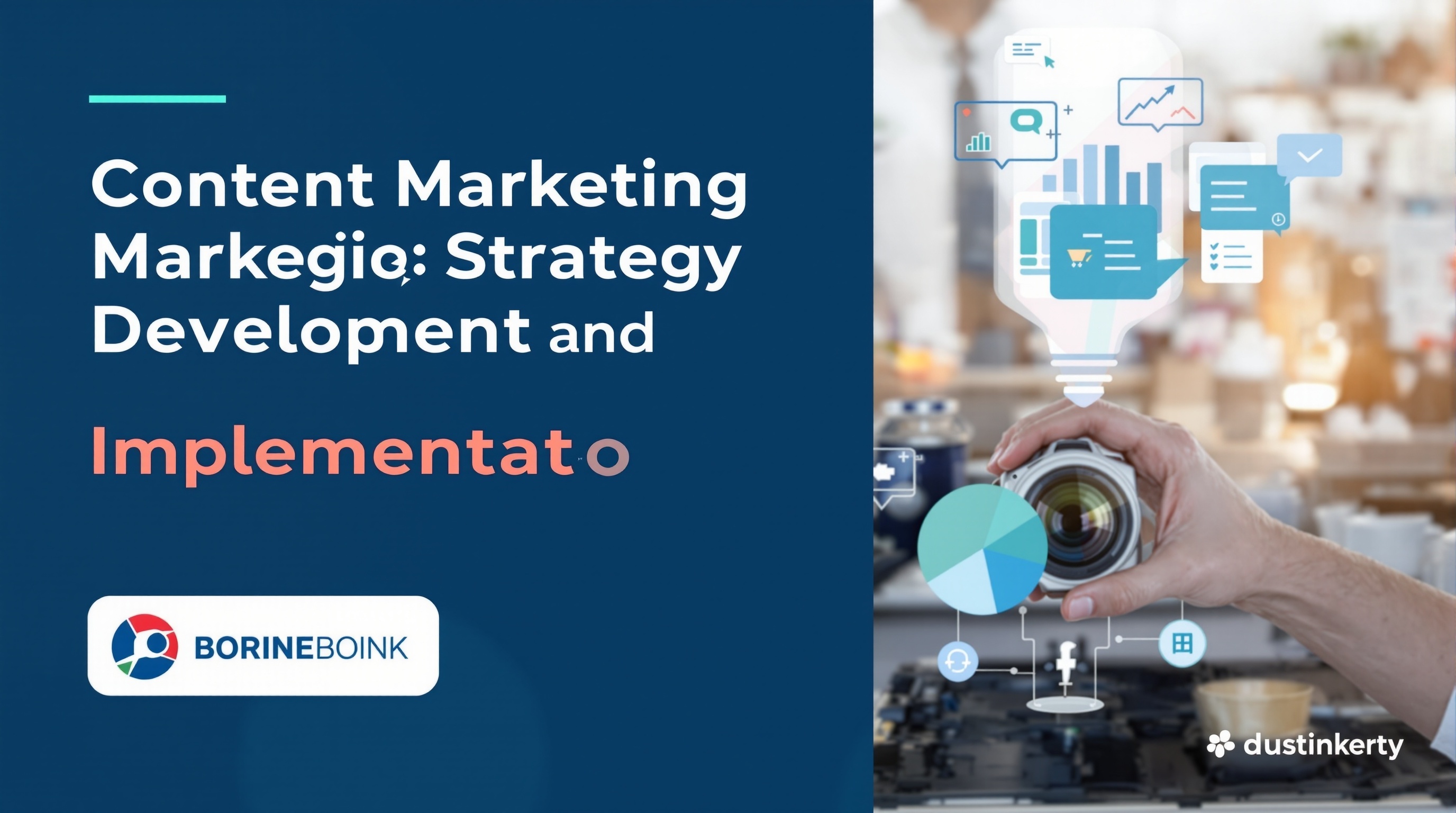Strategic Branding Services | Expert Brand Development & Positioning
Discover strategic branding services that build strong brand identities, drive customer loyalty, and boost business growth. Explore expert-led solutions from identity design to digital branding.

In today’s competitive market, strategic branding services are essential for building a memorable, consistent, and differentiated brand that connects with customers. From identity development to digital strategy, explore how expert branding solutions establish credibility, attract loyal customers, and drive long-term success.
Core Strategic Branding Services
Brand Identity Development
At the heart of any effective brand strategy is a well-defined brand identity. This encompasses the visual, verbal, and emotional elements that distinguish a brand in the minds of its audience. Strategic branding services begin with crafting a unique brand identity that includes logo design, color palettes, typography, imagery, tone of voice, and messaging frameworks. These elements are designed not only to reflect the organization’s values and mission but also to resonate with its target audience across all touchpoints.
A strong brand identity ensures consistency in communication and helps build recognition and trust. Strategic branding professionals often conduct workshops and discovery sessions to extract key brand attributes that inform the development of a compelling and authentic identity.
Brand Positioning Strategy
Brand positioning defines how a brand is perceived in the marketplace relative to its competitors. Strategic branding services involve developing a positioning strategy that identifies a clear and differentiated space for the brand. This includes:
- Audience segmentation and persona development
- Competitive analysis and market research
- Value proposition articulation
- Positioning statements and messaging pillars
Effective brand positioning aligns internal brand values with external customer perceptions, enabling businesses to stand out in crowded markets. It also serves as the foundation for all marketing and communication efforts.
Brand Architecture and Portfolio Strategy
For organizations with multiple products, services, or sub-brands, brand architecture is essential. Strategic branding services include the development of a clear and scalable brand architecture that defines relationships between the corporate brand and its extensions. This can take the form of:
- Monolithic (branded house) systems
- Endorsed brand structures
- Freestanding (house of brands) models
A solid brand architecture simplifies decision-making, streamlines marketing efforts, and ensures brand coherence across business units or product lines.
Naming and Verbal Identity
Naming a brand, product, or service is a critical component of strategic branding. It requires creativity, linguistic sensitivity, and strategic alignment. Branding services in this area include name development, trademark screening, and domain availability checks. Verbal identity also encompasses:
- Tagline and slogan creation
- Brand voice and tone guidelines
- Messaging hierarchies tailored for different audiences and channels
Strategic naming and messaging contribute to memorability, emotional impact, and brand storytelling.
Customer Experience and Brand Touchpoints
Strategic branding extends beyond visual assets to shape the entire customer experience. This includes mapping and optimizing every brand touchpoint — from digital interactions to in-store experiences and customer service encounters. Services typically include:
- Customer journey mapping
- Touchpoint audit and optimization
- Experience design aligned with brand values
By designing every interaction to reflect the brand promise, organizations can build stronger emotional connections with their audience.
Digital Brand Strategy
In today's digital-first world, branding services incorporate a robust digital strategy to ensure consistency and effectiveness across online channels. This includes:
- Social media branding and content strategy
- Website design and UX aligned with brand identity
- Digital asset creation and management
- SEO and digital advertising alignment with brand values
A comprehensive digital brand strategy ensures that a brand remains relevant and visible in an increasingly screen-based world.
Internal Brand Engagement
Successful brand strategies are not only customer-facing; they also require internal alignment. Strategic branding services include internal brand engagement programs designed to educate and inspire employees. These may include:
- Brand training sessions and workshops
- Employee brand guidelines
- Internal campaigns to build brand advocacy
When employees understand and believe in the brand, they become powerful ambassadors, reinforcing the brand through every interaction.
Brand Guidelines and Governance
To maintain consistency across all brand expressions, strategic branding services often culminate in the development of comprehensive brand guidelines. These documents serve as a roadmap for internal teams and external partners, covering:
- Visual identity specifications
- Verbal and messaging rules
- Usage scenarios and do’s and don’ts
- Governance models for brand evolution and oversight
Strong brand governance ensures that the brand remains coherent, recognizable, and adaptable as the organization grows and evolves.
Rebranding and Brand Refresh Services
For organizations undergoing change — whether due to mergers, shifts in market positioning, or evolution of their mission — rebranding can be a vital strategic move. Services in this area include:
- Brand audits and assessments
- Stakeholder engagement and research
- Identity redesign and repositioning
- Communication strategies for rollout
A rebrand or brand refresh brings renewed energy, clarity, and relevance to a business, ensuring it stays competitive and connected to its audience.
Professional Brand Development Process
Discovery and Research Phase
The brand development process begins with a comprehensive discovery phase. This involves in-depth research to understand the client's business objectives, target audience, competitors, market trends, and existing brand perception. Brand strategists conduct stakeholder interviews, customer surveys, and analyze industry benchmarks to gather actionable insights. This foundational stage informs the strategic direction of the brand and ensures alignment with the company’s long-term goals.
Key activities include:
- Brand audits to evaluate current positioning and identity
- Competitor analysis to identify market gaps
- Consumer behavior research to define audience personas
- SWOT analysis for strategic clarity
Strategic Brand Positioning
Once research is complete, professionals craft a brand positioning strategy that defines how the brand will be perceived in the market. This includes developing a unique value proposition, establishing brand pillars, and articulating the brand promise. The goal is to create differentiation and relevance that resonate with the target audience.
Core components of brand positioning include:
- Purpose and mission statements
- Brand values and personality
- Target market segmentation
- Competitive advantage articulation
Brand Identity Development
Brand identity is the visual and verbal expression of the brand’s strategic positioning. This stage involves creating a cohesive identity system that includes logos, typography, color palettes, imagery style, and tone of voice. Professional agencies ensure that each element of the identity reflects the brand's core values and is adaptable across various digital and physical touchpoints.
Deliverables typically include:
- Logo design and usage guidelines
- Typography and color systems
- Iconography and visual styles
- Brand voice and messaging frameworks
Integrated Brand Communication Strategy
A strong brand strategy must be communicated consistently across all platforms. This phase involves developing a multi-channel communication plan that aligns with the brand’s identity and positioning. Messaging is tailored for different audiences and platforms, from websites and social media to advertising campaigns and internal communications.
Key elements include:
- Content strategy and storytelling frameworks
- Campaign planning and creative direction
- Social media voice and engagement tactics
- Internal brand alignment and culture-building
Implementation and Rollout
Implementing a brand strategy requires a structured rollout plan to ensure consistency and effectiveness. Professionals manage the execution of the brand across all relevant touchpoints—both digital and physical. This includes website launches, rebranding of packaging, internal training sessions, and marketing collateral updates.
Implementation services often include:
- Project management and brand rollout timelines
- Digital asset management systems
- Training sessions for internal teams
- Quality assurance and brand consistency checks
Ongoing Management and Evolution
Brand development is not a one-time effort—it requires ongoing management and adaptation. Strategic branding services often include long-term brand stewardship, performance monitoring, and iterative improvements based on market feedback and performance metrics.
Ongoing services may involve:
- Brand performance audits
- KPI tracking and analytics
- Customer feedback integration
- Strategic adaptations based on business growth
This professional process ensures that brands are built on a solid strategic foundation, implemented with precision, and nurtured over time to maintain relevance, consistency, and competitive advantage.
Specialized Service Areas
Strategic branding services encompass a diverse range of specialized areas, each designed to address unique business challenges and opportunities. These service areas are essential for crafting a cohesive brand narrative, enhancing market positioning, and fostering long-term customer loyalty. Below are the key specialized service areas typically offered within a comprehensive strategic branding framework.
Brand Identity Development
Developing a compelling and consistent brand identity is foundational to any strategic branding effort. This service area includes:
- Logo and Visual Identity Design: Crafting logos, color palettes, typography, and other visual elements that reflect the brand’s personality and values.
- Brand Voice and Messaging: Defining the tone, language, and key messages that align with the brand’s purpose and resonate with target audiences.
- Brand Guidelines: Creating comprehensive style guides to ensure consistency in brand presentation across all media and communication platforms.
These components serve as the visual and verbal foundation of how a brand is perceived and are crucial in differentiating a brand in competitive markets.
Market Research and Brand Positioning
Effective branding is rooted in a deep understanding of the market landscape. Specialized services in this area include:
- Audience Segmentation and Persona Development: Identifying core customer segments and building detailed profiles to guide brand communication.
- Competitive Analysis: Evaluating competitors to identify gaps, opportunities, and positioning strategies.
- Market Trend Analysis: Leveraging data to anticipate changes in consumer behavior and industry dynamics.
These insights inform strategic decisions and help position the brand uniquely and effectively in the marketplace.
Brand Strategy and Planning
Strategic planning services align branding activities with overall business objectives. This area typically includes:
- Brand Architecture Development: Structuring brand portfolios, including parent brands, sub-brands, and product extensions for clarity and coherence.
- Brand Purpose and Vision Articulation: Defining the “why” behind the brand and its long-term aspirations.
- Strategic Roadmapping: Laying out phased implementation plans that align with business priorities and market opportunities.
This ensures that branding initiatives are not only creative but also strategically sound and sustainable.
Digital Brand Strategy
With the rise of digital media, specialized digital branding services are essential. These include:
- Digital Experience Design: Creating user-centric digital touchpoints such as websites, apps, and social platforms that reflect the brand identity.
- Content Strategy: Planning and producing digital content that engages audiences and reinforces brand messaging.
- Social Media Branding: Establishing a consistent and interactive brand presence across social platforms.
Digital branding leverages technology to create meaningful and measurable customer interactions in real time.
Brand Activation and Campaign Development
Turning strategy into action requires well-executed brand activations and campaigns. Services in this area may include:
- Integrated Marketing Campaigns: Developing cross-channel campaigns that communicate the brand message effectively.
- Experiential Branding: Designing real-world interactions that immerse customers in the brand experience.
- Event Branding and Launch Strategies: Planning and executing brand launches and promotional events that generate buzz and engagement.
These services build awareness and emotional connection, helping brands come to life in the minds of consumers.
Rebranding and Brand Refresh Initiatives
For businesses undergoing change or seeking renewed relevance, rebranding services are vital. This includes:
- Brand Audits: Assessing current brand equity, perception, and alignment with business goals.
- Repositioning Strategies: Adjusting the brand’s market stance to better suit evolving customer needs or competitive dynamics.
- Visual and Messaging Updates: Refreshing brand elements to enhance modern appeal while retaining core identity.
These services ensure that brands evolve with the times while staying true to their essence.
Purpose-Driven Brand Development
Modern consumers seek brands with values and social impact. Specialized services in purpose-driven branding include:
- Brand Purpose Discovery: Identifying and articulating the social or environmental cause central to the brand.
- Cause Marketing Integration: Aligning campaigns and partnerships with the brand’s stated impact goals.
- Stakeholder Engagement: Building narratives and programs that involve employees, customers, and communities in the brand’s mission.
Purpose-driven branding fosters authenticity and long-term loyalty by aligning brand actions with consumer values.
Internal Brand Alignment and Employer Branding
A successful brand strategy must be embraced internally. This area includes:
- Employee Brand Training: Educating teams on brand values, messaging, and behavior expectations.
- Employer Branding Strategy: Positioning the company as a desirable place to work through culture-driven storytelling.
- Internal Communication Systems: Developing platforms and materials to reinforce brand alignment across departments.
These services ensure internal stakeholders become brand ambassadors, reinforcing the brand from the inside out.
Industry Experience and Expertise
Proven Track Record Across Industries
Strategic brand development is not a one-size-fits-all process—it thrives on experience, adaptability, and deep industry insight. Over the years, seasoned branding professionals have honed their expertise by working across diverse sectors such as education, food and beverage, professional services, and non-profit organizations. Each of these sectors presents unique challenges and opportunities that inform a refined, strategic approach to brand building.
For instance, in the education sector, branding strategies must balance institutional credibility with emotional engagement. The International Grammar School's brand repositioning is a prime example of aligning traditional values with modern visual identity to appeal to both students and parents. Similarly, in the food and beverage industry, brands like Gweilo Beer have leveraged professional expertise to craft identities that are both bold and culturally resonant, gaining competitive traction in saturated markets.
Strategic Branding Case Studies
The transformation of Olive Tree Bookkeeping illustrates how strategic branding can elevate a professional service provider from a functional identity to a trusted partner in financial clarity. Through targeted messaging, visual identity overhaul, and clarity in brand voice, Olive Tree repositioned itself to better connect with its ideal clientele.
In the non-profit space, the Property Industry Foundation partnered with branding experts to create a more compelling narrative that resonated with stakeholders and donors. This project showcased how purpose-driven branding can foster deeper emotional connections and stronger community support.
These case studies demonstrate how experience in brand development leads to measurable success—whether it's increased market share, stronger customer loyalty, or enhanced organizational clarity.
Lessons Learned and Best Practices
From years of strategic brand development, several best practices have emerged:
Audience-Centric Strategy: Brands that thrive are those that deeply understand their audience. Experience has shown that empathy-driven research and user persona development are key to building resonant messaging.
Consistency Across Touchpoints: A strong brand identity is consistent, not only visually but also in tone and behavior across physical and digital platforms. Expert branding teams ensure this consistency to build trust and recognition.
Purpose-Driven Positioning: Today’s consumers seek authenticity. Strategic brand professionals emphasize aligning brand values with business goals to drive meaningful engagement.
Adaptability and Evolution: Through ongoing campaigns and brand audits, experienced teams have learned to remain agile, allowing brands to evolve alongside changing market conditions and consumer expectations.
Expert Insight and Collaborative Approach
What sets experienced branding teams apart is their collaborative and human-centered approach. Rather than imposing a one-size-fits-all solution, they co-create strategies with the client, ensuring that the brand authentically reflects the organization’s mission, values, and goals.
This level of expertise is not only built through academic knowledge or trend analysis—it is earned through years of hands-on implementation, iterative learning, and a deep understanding of how strategy, creativity, and business objectives intersect.
Ultimately, industry experience and professional expertise are the cornerstones of successful strategic brand development. They empower brands to navigate complex challenges, craft meaningful identities, and connect with audiences in ways that drive sustained growth.
Measuring Branding Success
Evaluating the success of a brand strategy is essential for determining its effectiveness, optimizing future initiatives, and demonstrating the value of branding as a strategic investment. Strategic branding services rely on a combination of qualitative and quantitative methods to assess performance and ensure alignment with business objectives.
Key Performance Indicators (KPIs)
Strategic brand development hinges on identifying and monitoring the right KPIs. These indicators provide measurable insights into how well the brand is performing in the market and in the minds of consumers. Common KPIs include:
- Brand Awareness: Measured through surveys, social listening, and search volume data, awareness metrics indicate how familiar your target audience is with your brand.
- Brand Perception: This includes sentiment analysis and customer feedback to understand how your brand is perceived in terms of trust, quality, and relevance.
- Customer Engagement: Metrics such as click-through rates, time on site, and social media interactions provide insight into how actively audiences are interacting with your brand.
- Customer Loyalty and Retention: Repeat purchase rates, Net Promoter Score (NPS), and customer lifetime value (CLV) help evaluate long-term brand relationships.
- Market Share and Sales Growth: These financial indicators highlight the business impact of branding efforts, especially when compared to competitors.
Analytics and Tracking Methods
A data-driven approach to branding success requires robust tracking systems and tools. Strategic branding services utilize a mix of digital analytics and traditional research methods to gather actionable insights, such as:
- Web and Social Analytics: Platforms like Google Analytics, Meta Insights, and LinkedIn Analytics track engagement, user behavior, and conversion paths.
- Brand Health Tracking: Ongoing brand health studies assess awareness, consideration, preference, and advocacy over time.
- Surveys and Focus Groups: Qualitative research provides deeper understanding of customer sentiment and emotional connection to the brand.
Adaptation and Optimization
Brand strategy is not static—it evolves based on market dynamics and consumer behavior. Continuous monitoring allows brands to pivot and refine their approach for sustained relevance and resonance. Strategic branding experts apply insights from measurement tools to:
- Refine Messaging: Ensuring that the brand voice and tone remain aligned with audience expectations.
- Reposition the Brand: If performance falls short, a strategic repositioning may be necessary to better align with market needs.
- Enhance Customer Experience: Insights from engagement and feedback are used to optimize user touchpoints across digital and physical channels.
ROI Evaluation
Ultimately, the success of a brand strategy must be tied back to return on investment (ROI). While branding often delivers long-term value, strategic branding services focus on connecting brand initiatives with measurable business outcomes. Methods for evaluating ROI include:
- Attribution Modeling: Linking brand touchpoints to conversions and revenue to assess the effectiveness of specific campaigns or channels.
- Cost-Benefit Analysis: Comparing the investment in brand development to outcomes such as increased sales, improved customer retention, and market expansion.
- Brand Equity Valuation: Assessing the intangible value of the brand itself, including its impact on pricing power, investor interest, and partnership opportunities.
Measuring branding success requires a comprehensive framework that combines performance data, customer insights, and business results. Strategic branding services ensure that measurement is not an afterthought, but an integral part of the brand development process—enabling continuous improvement and long-term brand excellence.
Strategic branding services lay the foundation for long-term brand success by aligning vision, identity, and experience across every touchpoint. From market research to digital execution and internal alignment, these services ensure your brand connects meaningfully with the right audience. If you’re ready to build a brand that drives lasting impact, consider partnering with a professional strategic branding agency to guide your transformation.




